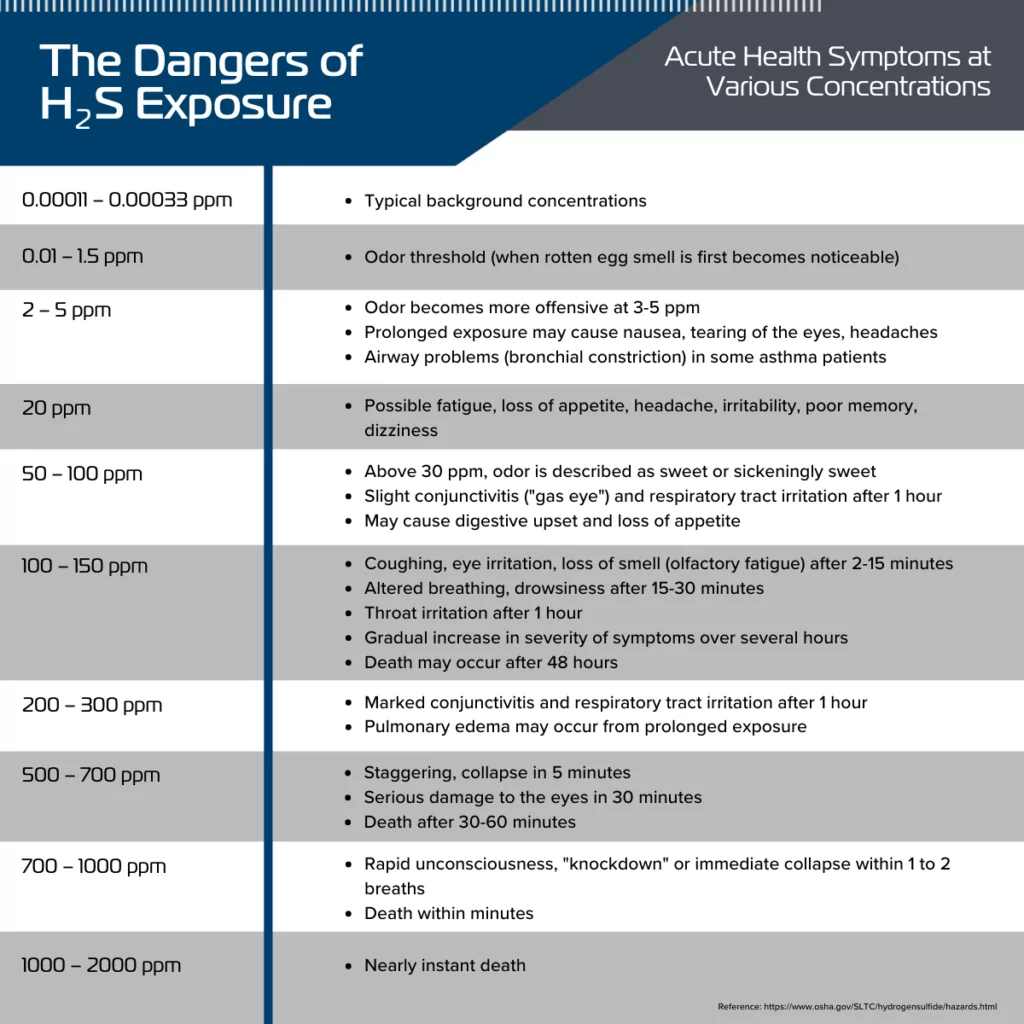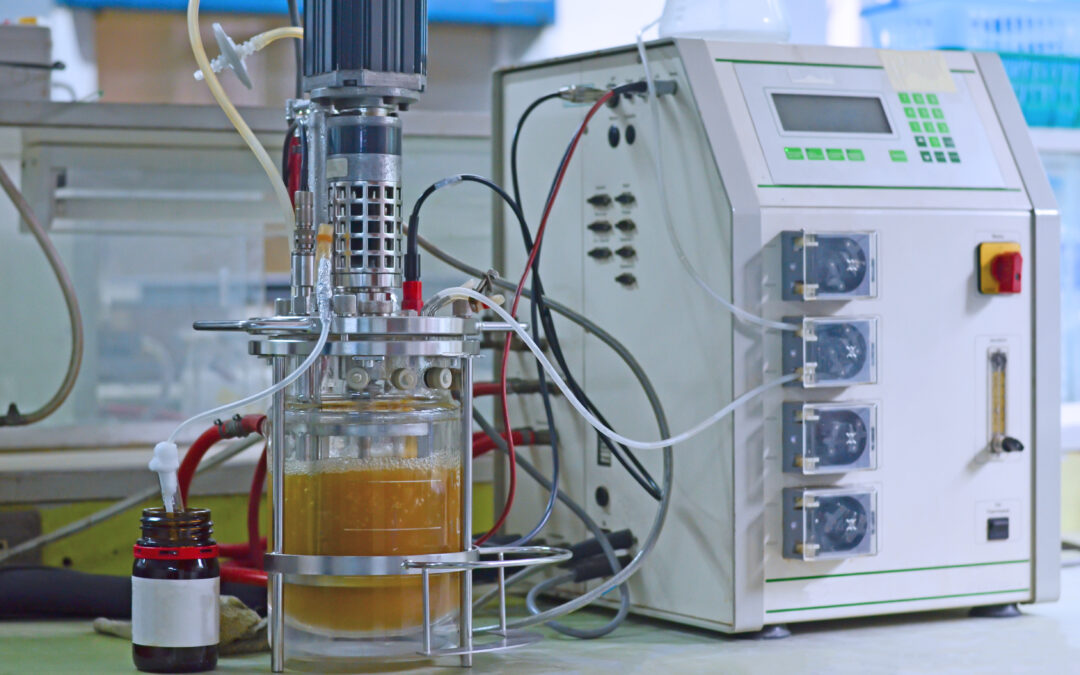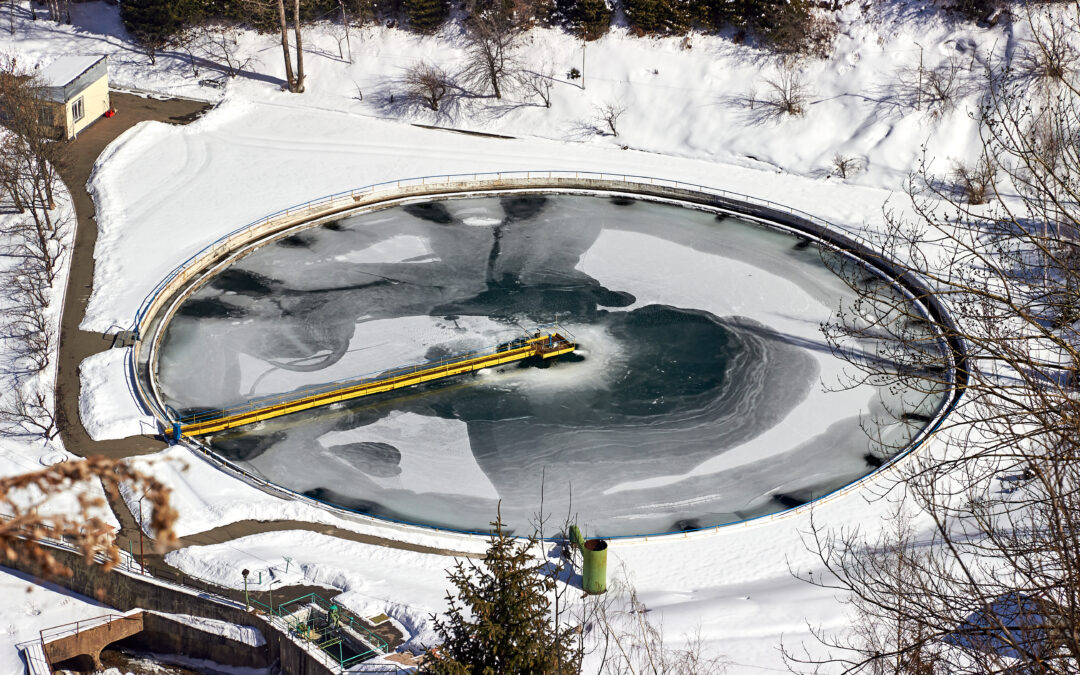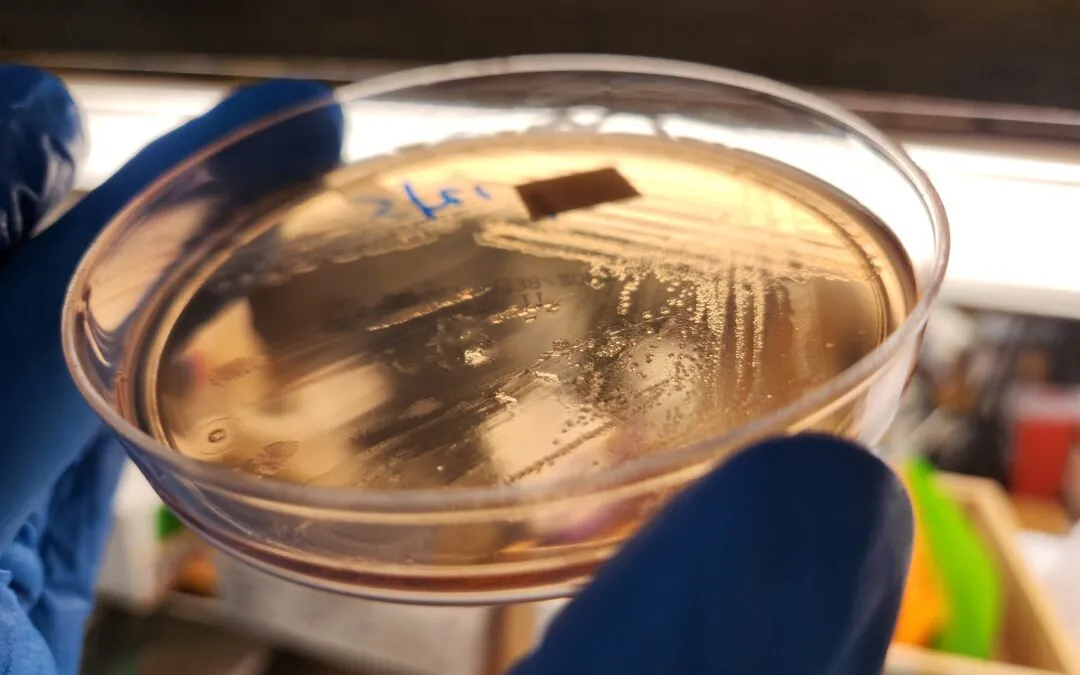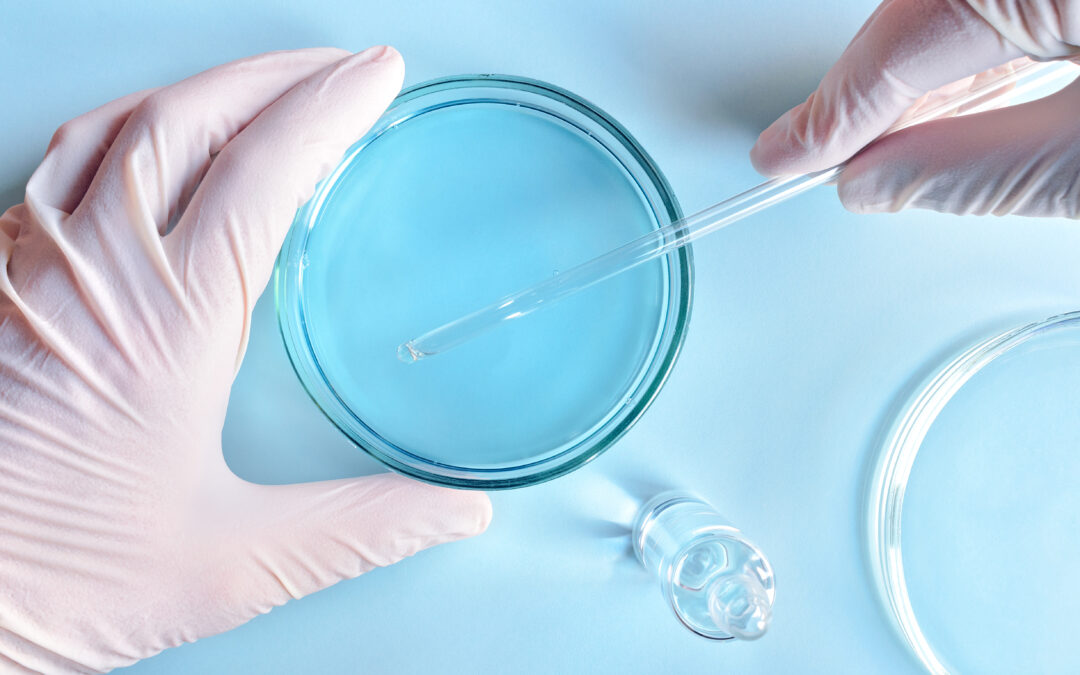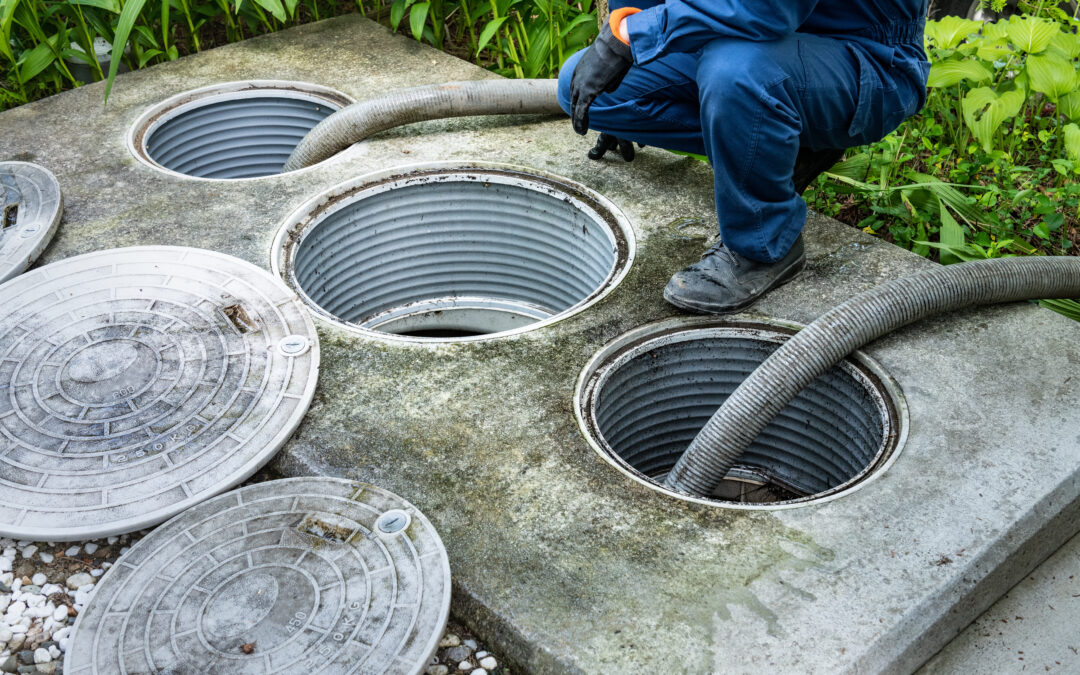Wastewater and collection systems with anaerobic areas, FOG, or sludge build-up provide the perfect environment for hazardous Hydrogen sulfide (H2S) production. Because of this, it’s not uncommon for concentrations to climb above 1000 ppm!
To understand the risks, check out the chart below to better understand the dangers associated at every level.
** Click to Enlarge
What should you do if you’re dealing with H2S? Enter a safe, effective solution: bioaugmentation!
Hydrogen sulfide (H2S) gas is a by-product of sulfur-reducing bacteria (SRB), using sulfur compounds in the absence of oxygen (anaerobic environments). By disrupting growth conditions for SRBs, Bacillus bacteria are able to reduce the production of H2S without the need for harsh chemicals. Connect with our team and we can get ahead of this dangerous and destructive problem together.
